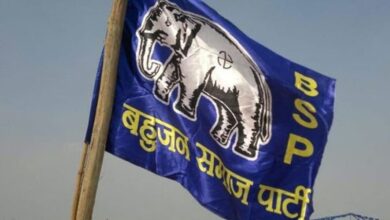Greetings on Pakistan’s Independence Day and criticism of the Supreme Court’s ruling that Article 370 abrogation is not an offense
The Supreme Court ruled on Thursday, March 7, that every person has the right to object to any governmental decision. The court also dismissed an FIR against a professor for his WhatsApp post criticizing the repeal of Article 370. The Bombay High Court’s judgment was overturned by the Supreme Court, nullifying the case against Professor Javed Ahmed Hajam, who was the subject of a Section 153A Indian Penal Code prosecution for encouraging communal discord.

“August 5-Black Day Jammu & Kashmir” and “August 14-Happy Independence Day Pakistan” were among the WhatsApp messages Hajam posted on the abrogation of Article 370, for which the Maharashtra Police had filed a formal complaint (FIR) at the Hatkanangale police station in Kolhapur.
The highest court also declared that on the anniversaries of their respective nations’ independence, every person has the right to wish the people of those nations well. The Supreme Court said that there is nothing illegal about an Indian citizen wishing the people of Pakistan a happy Independence Day on August 14.
Article 19(1)(a) of the Indian Constitution ensures freedom of speech and expression. Every person is entitled, under the aforementioned guarantee, to critique the action taken to revoke Article 370 or, for that matter, any choice made by the state. A panel of Justices Abhay S. Oka and Ujjal Bhuyan said, “He has the right to say he is unhappy with any decision of the state.”
The Supreme Court ruled that every Indian citizen has the right to object to the action to revoke Article 370 and change Jammu and Kashmir’s status.
“Calling the day of the abrogation a ‘Black Day’ is a symbol of protest and suffering. Democracy, which is a fundamental component of the Indian Constitution, cannot endure if every objection to the state’s acts is to be treated as a criminal violation under Section 153-A, the judgment said.
The Supreme Court ruled that one of the fundamental rights protected by Article 19(1) is the ability to disagree in a way that is both reasonable and legal (a).
“Everyone has a responsibility to respect others’ freedom to disagree. A fundamental component of democracy is the ability to peacefully criticize government decisions. It said that “the right to lead a dignified and meaningful life guaranteed by Article 21 must be treated as a part of the right to dissent in a lawful manner.”
The bench said that the protest or dissent must fall within four parameters of what is acceptable in a democratic setting and that it is subject to reasonable limitations imposed in compliance with Article 19(2). The appellant in this instance has not breached any boundaries, according to the top court.
The Supreme Court bench said that it is impossible to completely rule out the potential of inciting strong emotions in a group of individuals.
The parents, students, and instructors at the appellant’s institution were purported members of the WhatsApp group. According to Justice Vivian Bose’s ruling, the appellant’s comments’ impact on his WhatsApp status must be evaluated using the norms of sensible men and women.
“We cannot apply the standards of people with weak and vacillating minds,” it said, adding that “our country has been a democratic republic for more than 75 years.”.
The country’s highest court noted that citizens understand the concept of democracy and said that it is impossible to draw the conclusion that the statements would incite animosity, hostility, or malice between various religious groups.
“The standard to be used is not how the words affect some people who have weak brains or who see danger in every opposing viewpoint. The general effect of the words on reasonable individuals who are statistically significant is the test. The court said that the mere fact that a small number of people may get hostile or vindictive would not be enough to trigger paragraph (a) of sub-section (1) of Section 153-A of the IPC.
The court said that it was of the opinion that the image with the words “Chand” and “14th August Happy Independence Day Pakistan” below it would not be subject to clause (a) of sub-section (1) of Section 153-A of the IPC.
“It is every citizen’s right to wish the inhabitants of other nations a happy anniversary of their respective independence. On August 14, Pakistan’s Independence Day, there is nothing wrong with an Indian citizen wishing the people of Pakistan well.
It’s an act of kindness. It is thus impossible to say that such actions would serve to sow discord or emotions of animosity, hate, or malice among various religious groups. The appellant’s motivations cannot be explained just by his membership in a specific faith, the panel said.
The Supreme Court ruled that it is now necessary to inform and teach our law enforcement officials on the scope of justifiable restrictions on their right to free speech and expression,, as well as the idea of freedom of speech and expression provided by Article 19(1)(a) of the Constitution. It said that they needed to be made aware of the democratic principles included in the Constitution. The court declared that it would be a flagrant misuse of the legal system to continue prosecuting the appellant for the offense covered by Section 153-A of the IPC.
“Accordingly, we set aside the impugned judgment dated April 10, 2023,, of the High Court of Judicature at Bombay and quash the impugned FIR,” the court stated.







